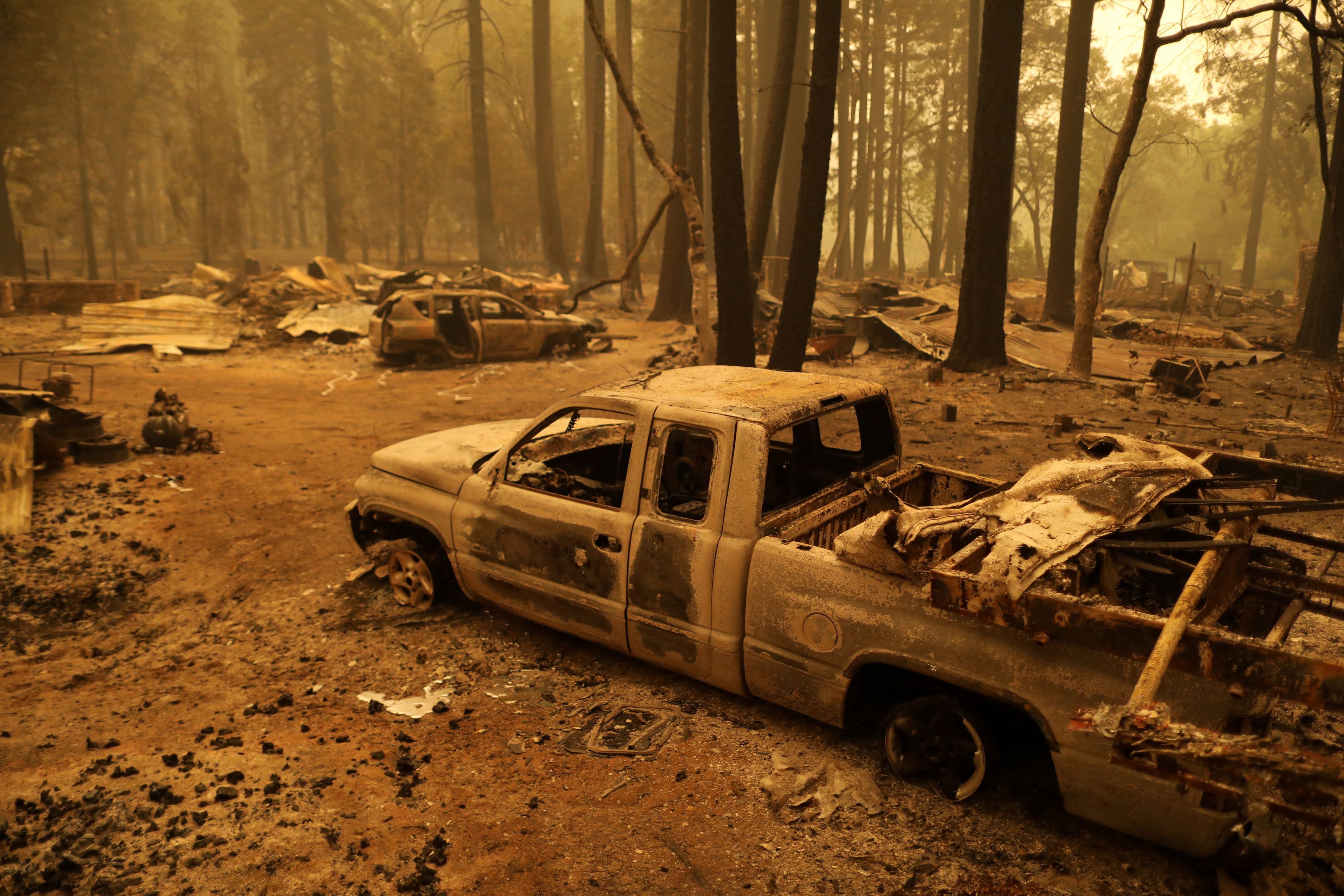
A general view of burnt cars as the Dixie Fire continues in Indian Falls, California, U.S., July 26, 2021.
David Swanson | Reuters
Climate change is getting personal.
Four in five people are willing to make changes to how they work and live to help reduce the effects of global climate change, according to new data released Tuesday from the Pew Research Center, a nonpartisan fact tank.
Only 19% of those surveyed reported they would be willing to make only a few or no changes at all to help reduce the effects of global climate change.
People are worried that climate change is going to impact their own lives: 72% of the people surveyed are very or somewhat concerned that global climate change will harm them personally at some point in their lifetime. Meanwhile, 27% of those surveyed are not too concerned or not at all concerned that climate change will harm them personally in their lifetime.
The data comes from a survey of 18,850 people in advanced economies.
From March 12 to May 26, 2021, Pew Research Center surveyed 16,254 adults over the phone in Canada, Belgium, France, Germany, Greece, Italy, the Netherlands, Spain, Sweden, the UK, Australia, Japan, New Zealand, Singapore, South Korea and Taiwan.
From Feb. 1 to 7, Pew Research Center surveyed 2,596 U.S. adults online and the responses were weighted to be representative of the U.S. adult population by gender, race, ethnicity, partisan affiliation, education and other categories.
A party line split in the U.S.
More respondents on the left of the ideological spectrum were willing to make changes to their own personal life and work habits to help reduce the effects of climate change.
Political polarization in the U.S. was on clear display in the survey, with a wide disparity between conservatives and liberals in terms of their expressed willingness to change.
In the poll, 45% of American conservatives said they were willing to change how they live and work to help reduce the effects of global climate change, while 94% of liberals said they’d be willing to change.
That’s a gap of 49 percentage points, far larger than any other country.
In the Germany, for example 94% of liberals are willing to change, versus 72% of conservatives — a 22-point gap. In Italy, that gap is only 7 percentage points: 96% of liberals versus 89% of conservatives.
While people are overwhelmingly worried about climate change, they don’t have much confidence that humanity will respond to the challenge.
Specifically, respondents say the United States and China are doing a poor job responding to climate change.
When residents of other countries were asked how they feel the United States is doing in its response to climate change, 61% of survey respondents said “bad.” Only 36% of survey respondents said “good.”
China is doing even worse: 78% of survey respondents say China is doing a bad job in responding to climate change while 18% said China is doing a good job.
The European Union and the United Nations are both doing much better in the court of public opinion: 63% of survey respondents said the EU is doing a good job responding to climate change (31% said bad) and 56% of respondents said the UN is doing a good job (39% said bad).
Overall, 56% say their own society is doing a somewhat or very good job of dealing with climate change, while 44% say their own society is doing a very or somewhat bad job.
Across the board, younger people are more concerned than older people are about climate change. Also, women are generally more concerned than men.



